Adil Najam
I am most pleasantly surprised that readers have so quickly figured out the mystery man in our latest ATP Quiz. Since they have, let me add a little more information and let the discussion continue.
I am not sure, however, how many readers know of Muhammad Asad or of his connection to Pakistan. Let me confess that until fairly recently I did not; at least not of the Pakistan connection. As I have gotten to know more about this connection, I have gotten more and more intrigued – all the more so because there is relatively little in his own writings or that of others about this.
But lets start from the beginning.
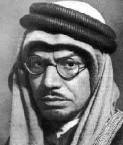
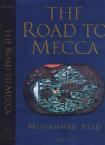 Asad was born in 1900 as Leopold Weiss to Jewish parents in Lvov (then part of the Habsburg Empire, now in Ukraine). He moved to Berlin in 1920 to become a journalist and traveled to Palestine in 1922. It was there that he first came into contact with Arabs and Muslims and began a long journey into Muslim lands and minds that eventually led to his embracing Islam in 1926. His bestselling autobiography Road to Mecca (published 1954) recounts these years in vivid and captivating detail., including his adventures in Arabia and in working with King Ibn Saud and the Grand Sanusi, amongst others.
Asad was born in 1900 as Leopold Weiss to Jewish parents in Lvov (then part of the Habsburg Empire, now in Ukraine). He moved to Berlin in 1920 to become a journalist and traveled to Palestine in 1922. It was there that he first came into contact with Arabs and Muslims and began a long journey into Muslim lands and minds that eventually led to his embracing Islam in 1926. His bestselling autobiography Road to Mecca (published 1954) recounts these years in vivid and captivating detail., including his adventures in Arabia and in working with King Ibn Saud and the Grand Sanusi, amongst others.
Later in his life, after retiring in Spain, he spent 17 years working on an English translation of the Quran which was first published in 1980. Many consider this to be one of the finest English translation of the Quran – some argue this is because he himself was fluent in bedouin Arabic which is closest to the Arabic in the Quran, others suggest that since he was himself a European and wrote in more understandable idiomatic English his translation is most accessible to non-Arabic speakers.
As a lay-reader who ver the years has read a number of English translations, including his, I do find Asad’s translation – The Message of the Quran – to be easier to read than those by Abdullah Yusuf Ali or Marmaduke Pickthall which are amore formal and literal translations. Unlike the translations by Prof. Ahmed Ali (my particular favorite) and by Thomas Cleary which are also in contemporary idiom and very readable, the Mohammad Asad translation has the added virtue of also having commentary and explanations, and the new edition is wonderfully presented, printed in the highest quality, and with tasteful calligraphy. All in all, Mohammad Asad’s The Message of the Quran is the translation that I now recommend to friends, Muslims as well as non-Muslims.
But I digress. Much as I like Muhammad Asad’s translation of the Quran and especially in its new printing, that is not the subject of this post. The subject of the post is his ‘Pakistani connection’ and also why we do not find much about that connection in his writings. Here is what we know.
By the early 1930s Asad had gotten rather disenchanted by King Ibn Saud and his religious advisors (see Road to Mecca) and had begun travelling Eastwards into other Muslim lands. This brought him to British India and there he met and became a good friend of Dr. Mohammad Iqbal. Indeed, Iqbal encouraged him to write his book Islam at the Crossroads (published 1934); whose cover has the following testimonial from Iqbal:
“I have no doubt that coming as it does from a highly cultured European convert to Islam, it will prove an eye-opener to our younger generation.” Muhammad Iqbal.
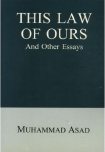
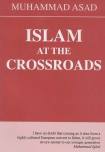
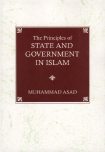
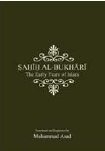
During World War II imprisoned him in a camp for enemy aliens (because of his Austrian nationality) while his father was interned by the Nazis because he was Jewish. After the War he fervently threw his all behind the demand for Pakistan. Upon the creation of Pakistan, he saw himself very much a ‘Pakistani’ as did those he worked with (reportedly even took to wearing the achkan). In 1947 he became the director of the Department of Islamic Reconstruction in West Pakistan and worked on a treatise with ideas for the Constitution of Pakistan. Many of these ideas (which were mostly related to creating a multi-party parliamentary democracy) were reproduced in his later books but he was not very successful in getting them implemented.
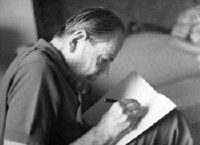 In 1949 Asad joined the Pakistan Foreign Ministry as head of the Middle East Division and eventually in 1952 came to New York as Pakistan’s representative to the United Nations. Here he met the woman who would become the last of his wifes (Pola Hamida). Whether it was the fact that he married her and divorced his earlier wife or the messiness of Pakistani politics, it was in this period that he fell out with the powers in Pakistan and resigned from the Foreign Ministry. He decided to stay on in New York to write Road to Mecca, which became a major success. He never really returned to Pakistan (although, supposedly, Gen. Zia ul Haq tried to get him back) and died in Europe in 1992.
In 1949 Asad joined the Pakistan Foreign Ministry as head of the Middle East Division and eventually in 1952 came to New York as Pakistan’s representative to the United Nations. Here he met the woman who would become the last of his wifes (Pola Hamida). Whether it was the fact that he married her and divorced his earlier wife or the messiness of Pakistani politics, it was in this period that he fell out with the powers in Pakistan and resigned from the Foreign Ministry. He decided to stay on in New York to write Road to Mecca, which became a major success. He never really returned to Pakistan (although, supposedly, Gen. Zia ul Haq tried to get him back) and died in Europe in 1992.
It was his estrangement with the Pakistan government that pushed him back into writing and produced two amazing works – Road to Mecca and The Message of the Quran. However, here once again is a story of one who wished to give his all to Pakistan and we did not let him.
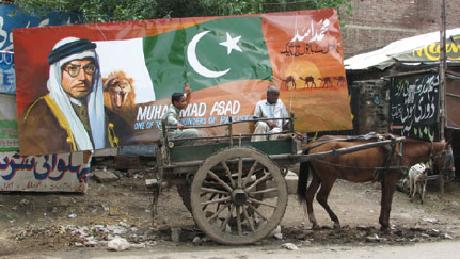
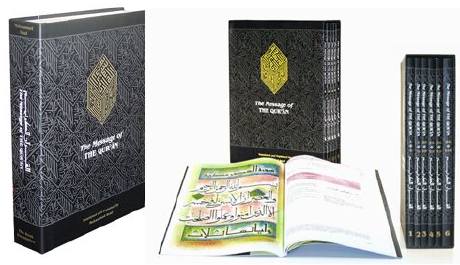
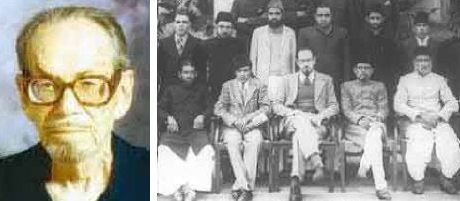



















































I came to know about Mohammad Asad back in 1992. He was soldier, freedom fighter , Journalist, , historian, theologist , jusrist and Statesman. Few People in pakistan know about this illustrious citizen. He was Pakistan’s representative in United Nations. . It is argued that Asad coined the word ” Islamic Civilization”. His book Road to makkah is worth reading. He wrote many books , especially the one on law making is remarkable. Unfortunately , this person was never mentioned in the history text books of Pakistan. A person born in poland in jewish family who choosed islam as his religion and groomed and shaped in arabia evetually came to pakistan and contributed and sacrificed exceptionally for the cause of pakistan. He is one of the great heroes of Pakistan selected by Allama Iqbal to ” to elucidate the intellectual premises of the future Islamic state”. He died in Spain and is burried in muslim cemtery in granada. We pakistanis must be proud of this unsung freedom hero .
Adil,
Another personality that you may want to research and cover on your site is (Maulana) Fazalur Rahman (1911-88). Maulana Fazalur Rahman hailed from Hazara and was appointed by President Ayub to the post of Director of the Central Institute of Islamic Research in 1962. However, to my understanding he was blocked by the Pakistani religious establishment of the time from making any positive contribution to the evolution of Islamic thought process in Pakistan. Fatwas were issued against him and disheartened by the whole affair he finally moved to the US in 1969 and taught at University of Chicago till his death in 1988.
I have not read any of his writings but understand that his main focus was on the primacy of Quran over any all other sources such as Hadith and Sunna as he felt that Quran had been over-ruled by secondary sources. (http://www.freerepublic.com/focus/fr/531762/posts )
It would be interesting to find out if any of the friends visiting this web-site have had the privelege of either knowing him and/or his work.
I had no idea about Muhammed Asad, his pakistani connection. But have heard about the book “Road To Mecca” though havent read it.
I also dont understand why Jinnah was so fond of Ataturk and regarded him Great Muslim Leader, ataturk, just tried his best to stop Islam as way of life. How can Jinnah say he was a Great Islamic Leader? I am really failing to understand this. Ataturk was so ashmed of his islamic past and introduced european lifestyle. So much love for europeans and even still now they dont accept Turkey as an european country.
I have just seen this piece and the comments on Muhammad Asad. I had the huge privilage to spend a few days with this noble man when he visited London in 1976 for the World of Islam Festival (http://www.saudiaramcoworld.com/issue/197603/the. world.of.islam-its.festival.htm). I had just finished college and was volunteering to look after the guests invited for the conferences and workshops organised as part of the festival. He and Said Ramadan (father of Tariq Ramadan), who was also attending were very proud of their Pakistani citizenship (in fact, Said Ramadan showed me his Pakistani passport and wondered if we could get that renewed). Needless to say that Muhammad Asad was very disappointed at the turn of events in Pakistan and felt that a superb opportunity at creating a home for Muslims had been squandered by petty managers. I agree with many respondents who have said that we have not had the grace or the foresight to have kept scholars like Asad and others on board. Another not so well known is that fact that Muhammad Asad’s brilliant scholar son Talal Asad, who was brought up and schooled in Pakistan, now lives and teaches in NY. He also needs to be read. Adil Najam has created a brilliant space where at least we can begin to communicate and to honor, albeit belatedly, the contributions by the likes of Asad. Perhaps this is the way forward to create the Pakistan that Allama Iqbal and Jinnah envisioned.
I was amazed to notice Mohammad Asad’s Pakistani connection.The truth is that as a nation we are hardly concerned for people who either cared for our future or got a name for this poor country. The examples are there-Johar, Dr.Salam and of course Mohammad Asad.